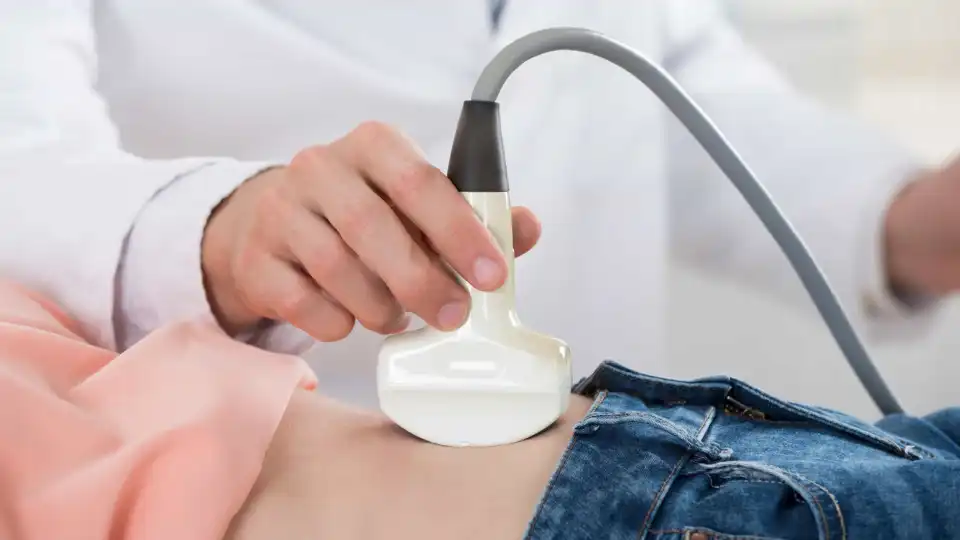Fertility. 10 illogical myths that you still believe
"There are many myths about fertility from our grandmothers' time that have no basis", warns Vânia Ribeiro, gynecologist and specialist in reproductive medicine.

© Shutterstock

Lifestyle Fertilidade
If you are trying to get pregnant, don't believe everything you read and hear. Instead, talk to a doctor to end preconceived ideas, myths and false beliefs that can harm your motherhood goals. In many cases, when the wait begins to be long, higher levels of anxiety set in and there is an understandable tendency to believe everything, even that which is not true.
"There are many myths and many false beliefs about fertility that have come from our grandmothers' time and have no basis. Dr. Google may not be a good advisor. It is with the doctor that the woman or the couple should share doubts and anxieties", warns Vânia Ribeiro, gynecologist and specialist in reproductive medicine.
Read Also: Thyroid malfunction has "very nonspecific symptoms and signs" (Portuguese version)
To help demystify issues surrounding fertility, the IVI Lisboa specialist reveals, in a statement, some myths and truths related to pregnancy.
1- Getting pregnant is easy. Myth!
We humans are not exactly the most fertile species on the planet. In each menstrual cycle, women of childbearing age have only a 20% chance of getting pregnant. This is one of the reasons why it is recommended to wait a year before seeking a specialist in medically assisted procreation to evaluate a possible case of infertility. If the woman is 35 years of age or older, this period is reduced to six months so that possible fertility problems in the woman or the couple can be detected as early as possible.
2- Being overweight impairs fertility. True!
Being overweight and/or obese can interfere with the hormonal system. In addition, the risk of obstetric complications is three times higher in obese women and the abortion rate is doubled. If you want to get pregnant, it is recommended to be within your ideal weight and have a healthy lifestyle.
Read Also: Four natural thermogenics that everyone knows and burn fat quickly (Portuguese version)
3- Infertility affects women more than men. Myth!
Infertility can affect about 10 to 15% of couples and 30% of cases will be related to female causes, another 30% to male causes, 20% to mixed causes and another 20% unexplained. Know that male infertility already represents about half of the cases currently seen in medically assisted procreation clinics.
4- I have a child, so I will not have problems getting pregnant again. Myth!
Have you heard of secondary infertility? It is the most common form of female infertility and is responsible for about half of all cases of infertility. In women, secondary infertility can be related to age (a crucial factor), endometriosis, hormonal changes; vaginal or uterine problems. In men, it may be linked to a decline in semen quality or quantity, the appearance of pathologies that affect the male reproductive system or changes in the genital tract.
Read Also: Nutrients discovered that can help prevent cases of dementia (Portuguese version)
5- Diet interferes with fertility. True!
If you are trying to get pregnant, opt for natural foods and eat a varied diet. Following the principles of the Mediterranean diet, which is characterized by the consumption of fresh and natural food, such as fruits, vegetables and greens, cereals, grains, seafood and healthy fats, is an excellent option to improve reproductive health and overall health. For example, fatty fish such as salmon and sardines are rich in omega-3, which contributes to hormonal health and the quality of eggs and semen.
6- I should only stop smoking after I get pregnant. Myth!
It is not news that smoking brings countless health hazards. One of the harmful effects is that tobacco use, in both men and women, is linked to a decrease in natural fertility. But quitting smoking only after getting pregnant is not enough. The male parent who smokes during the pre-conception period can contribute to a higher incidence of cancer in the offspring, possibly due to mutations in sperm DNA, which can be permanently transmitted to the fetus, becoming part of the genetic composition of the future generation. The risk of infertility in women who smoke during reproductive age is 60% and those who resort to medically assisted procreation treatments decrease their chance of pregnancy success by 50%.
Read Also: Specialist reveals the three best exercises for aging well (Portuguese version)
7- Physical activity promotes fertility. True!
Physical activity, which can be walking or practicing a modality, produces cardiovascular, metabolic, endocrine and neurological benefits. There are studies that show that exercise improves sperm quality.
8- The pill or IUD (intrauterine device) can cause infertility. Myth!
The pill can cover up hormonal problems, as it regulates the menstrual cycle. When the woman stops using it to get pregnant and fails, she thinks that the contraceptive is the culprit. Regarding the IUD, what the studies indicate is that there is a risk, although very slight, of developing pelvic inflammatory disease, which, in severe cases, could lead to obstruction of the tubes, and lead to infertility. But in the absence of pelvic infection, the IUD, by itself, does not cause infertility.
Read Also: Doctor reveals heart-friendly foods. You probably have it at home (Portuguese version)
9- Those diagnosed with cancer cannot have children. Myth!
Although radiotherapy and chemotherapy decrease the woman's fertility, they do not completely prevent motherhood. However, it is essential to safeguard reproductive potential, since the chances of getting pregnant naturally are reduced. Therefore, both women and men should vitrify (freeze) eggs or semen before starting treatments.
10- Infertility and sexual impotence are the same thing. Myth!
It is possible to have an active and satisfying sex life and, at the same time, have problems that prevent pregnancy. Or, on the contrary, there may be sexual dysfunctions that do not affect the quality of sperm and its ability to fertilize.
Read Also: Morning or evening bath? Science has decided (and the answer is not obvious) (Portuguese version)

Descarregue a nossa App gratuita.
Oitavo ano consecutivo Escolha do Consumidor para Imprensa Online e eleito o produto do ano 2024.
* Estudo da e Netsonda, nov. e dez. 2023 produtodoano- pt.com





